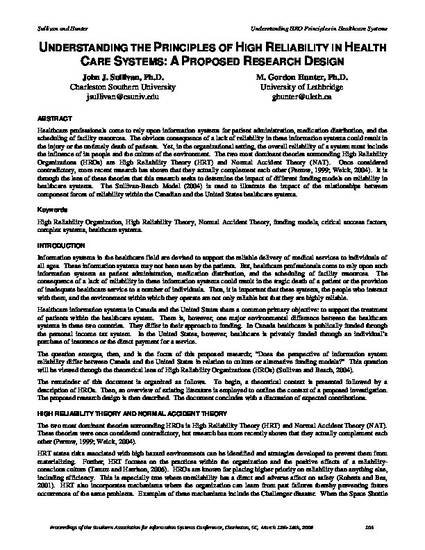
Healthcare professionals come to rely upon information systems for patient administration, medication distribution, and the scheduling of facility resources. The obvious consequence of a lack of reliability in these information systems could result in the injury or the untimely death of patients. Yet, in the organizational setting, the overall reliability of a system must include the influence of its people and the culture of the environment. The two most dominant theories surrounding High Reliability Organizations (HROs) are High Reliability Theory (HRT) and Normal Accident Theory (NAT). Once considered contradictory, more recent research has shown that they actually complement each other (Perrow, 1999; Weick, 2004). It is through the lens of these theories that this research seeks to determine the impact of different funding models on reliability in healthcare systems. The Sullivan-Beach Model (2004) is used to illustrate the impact of the relationships between component forces of reliability within the Canadian and the United States healthcare systems.
Available at: http://works.bepress.com/john-sullivan/16/
